While plastic belts are used mostly in factories, warehouses and plants, plastic conveyor belts are also seen in airports, at post offices, packaging facilities, mills and bottling plants. They transport raw materials, finished products, packages or parts, and they are the number-one choice in the food and beverage processing industry because they are easy to clean and sanitize and are non-contaminating. Read More…
Our conveyor belts are ISO 9002 and FDA certified. We can use our belts in nearly every industry, from transmission timing belts to conveyor belts for foods.
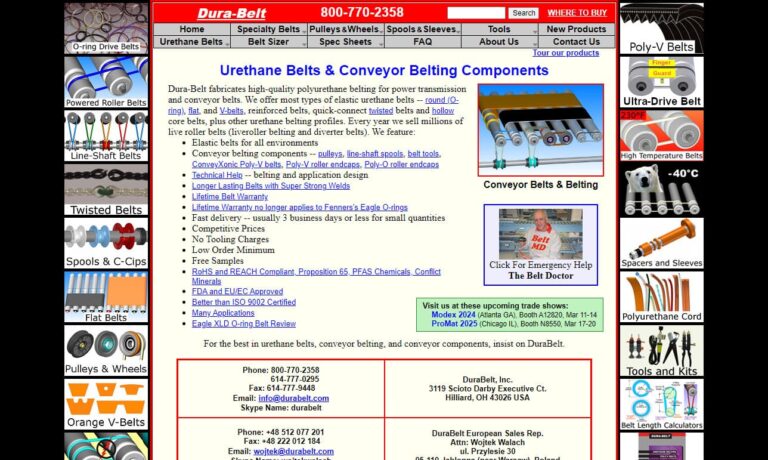
Creating conveyor belts at Fabrication Unlimited such as rubber belting, flat belts, endless belting, PVC, urethane belting, timing belts, cleated belting, specialty unscrambler belts (made-to-order), & corrugators belts, can be done with fast turn around for all fabricated belting offered. Serving food processing, agricultural, pharmaceutical, recycling, beverage and other industries.

Custom conveyor belting is fabricated by Beltservice Corporation and available through our distributors or OEMs. From this conveyor belt manufacturer, you will find agricultural, cleated, elevator, food handling, heat-resistant, heavy-duty and light-duty, incline, package-handling belting and more.

Come to Con-Belt Inc. for quality flat belts. Established in 1991, we have over twenty years of manufacturing experience and can meet your specifications and exceed your expectations. All of our products are made with pride in U.S. and are compatible and interchangeable with most major manufacturers’ conveyor equipment. Contact us today for further information about the products we offer.

More Plastic Conveyor Belt Manufacturers
Most plastic conveyor belts are FDA or USDA food grade approved and can handle light to medium duty weights. The meat processing, dairy, vineyard, fruit and vegetable and chocolate industries use plastic for all or most of their conveying needs. These belts come in many different configurations, but most are flexible and easy to install.
They exhibit a high resistance to abrasion, cracking, wicking and edge fraying and can handle oils and fats well. Thermoplastics are known for their high resistance to extreme temperatures; plastic belts are fully operational at a temperature range of anywhere from 34ºF to 200ºF.
Like most conveyor belts, plastic belts are commonly run by an electric motor. They are ideal for continuous conveying and come in many different forms. For loose materials, flat, fabric-reinforced belts are used because they are non-porous, watertight and do not contain any holes. This conveyor type is most likely welded together, and like all plastic belts it does not require the use of any adhesives. Other flat top plastic belts are composed of uniform, interlocking plastic pieces.
They increase the belt's flexibility and are easy to install and alter if necessary. Other types may be woven, perforated, a grid, ribbed or mesh. These all have holes and are used mainly for larger objects like packages. While plastic conveyor belts are anti-static and non conductive, meaning static electricity sparks are rare, it is best not to convey especially flammable or combustible materials in order to reduce the possibility of a fire. In comparison to metal or rubber conveyor belts, those made from thermoplastics are inexpensive, long-lasting and easy to install.

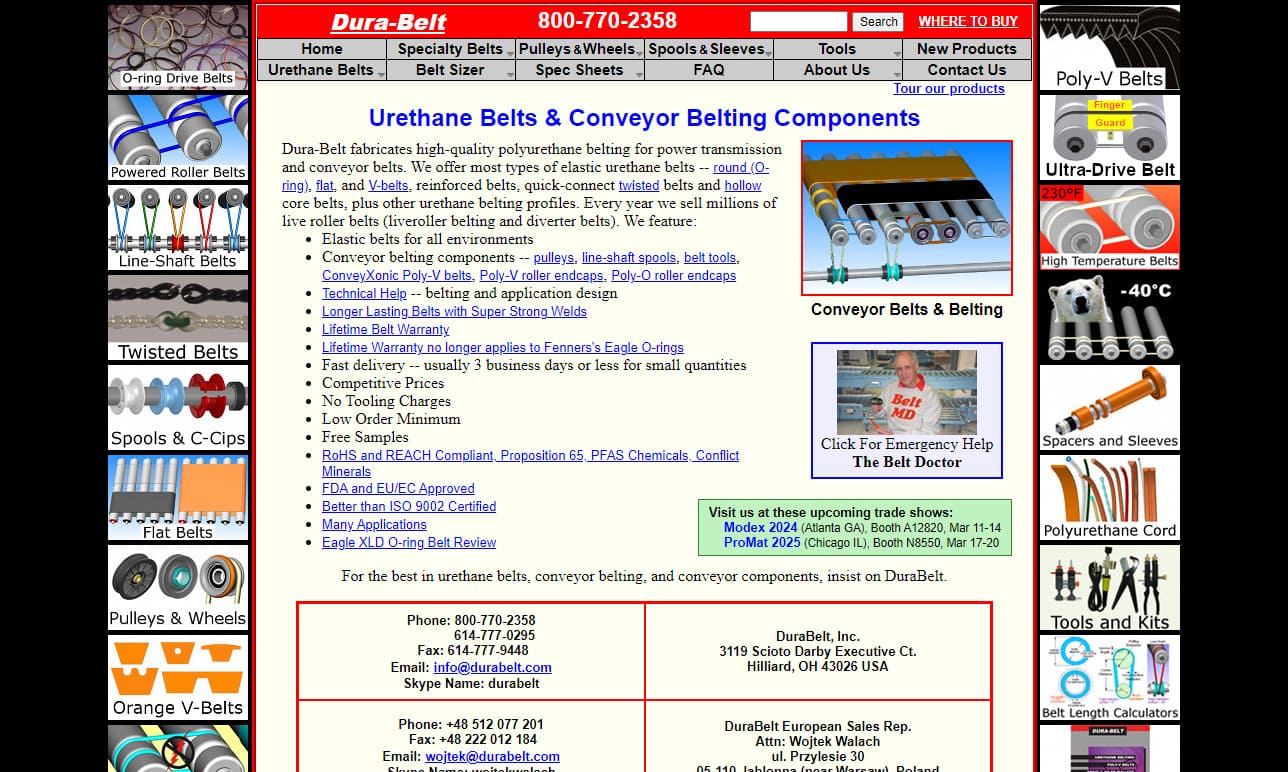



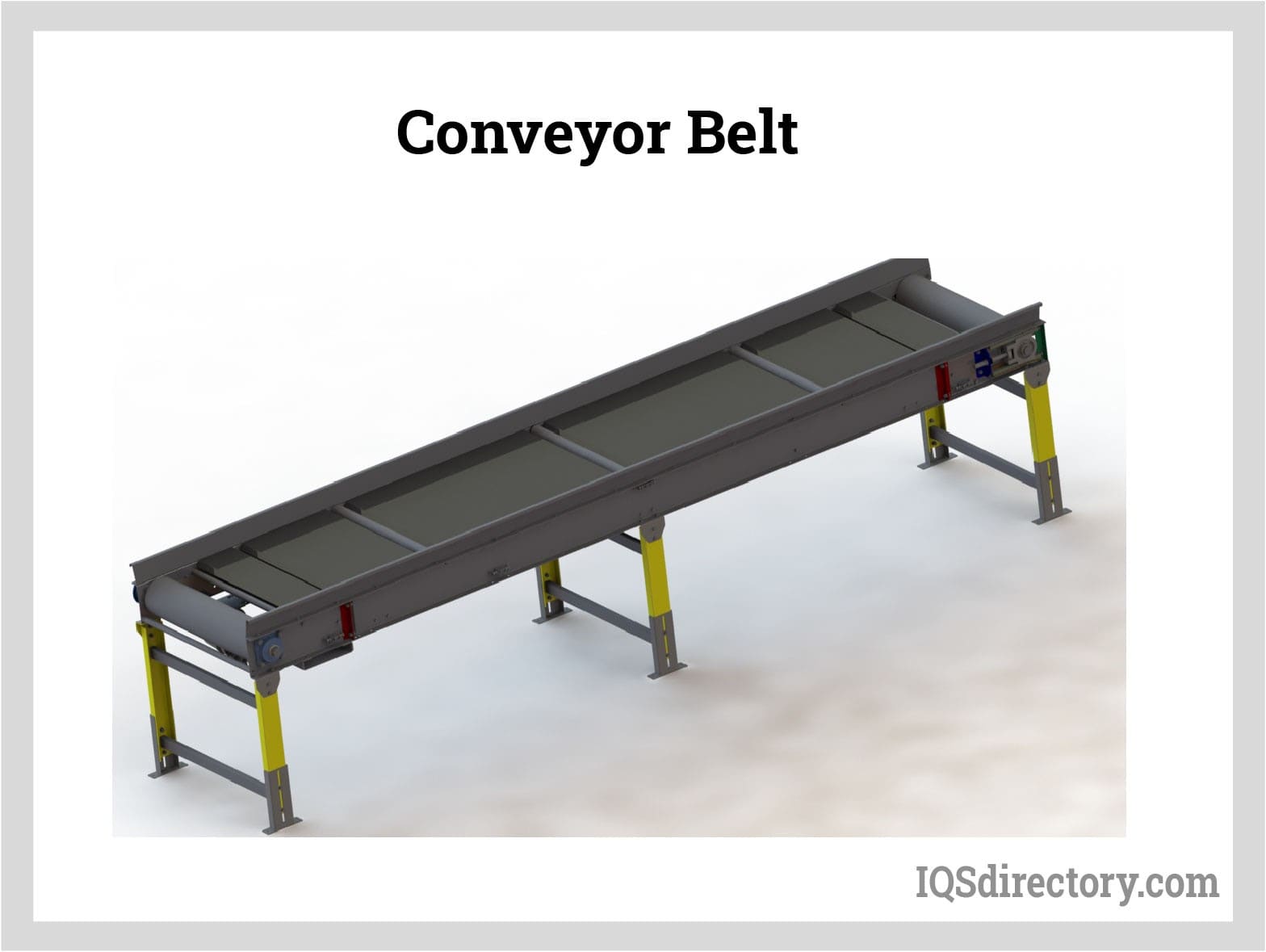
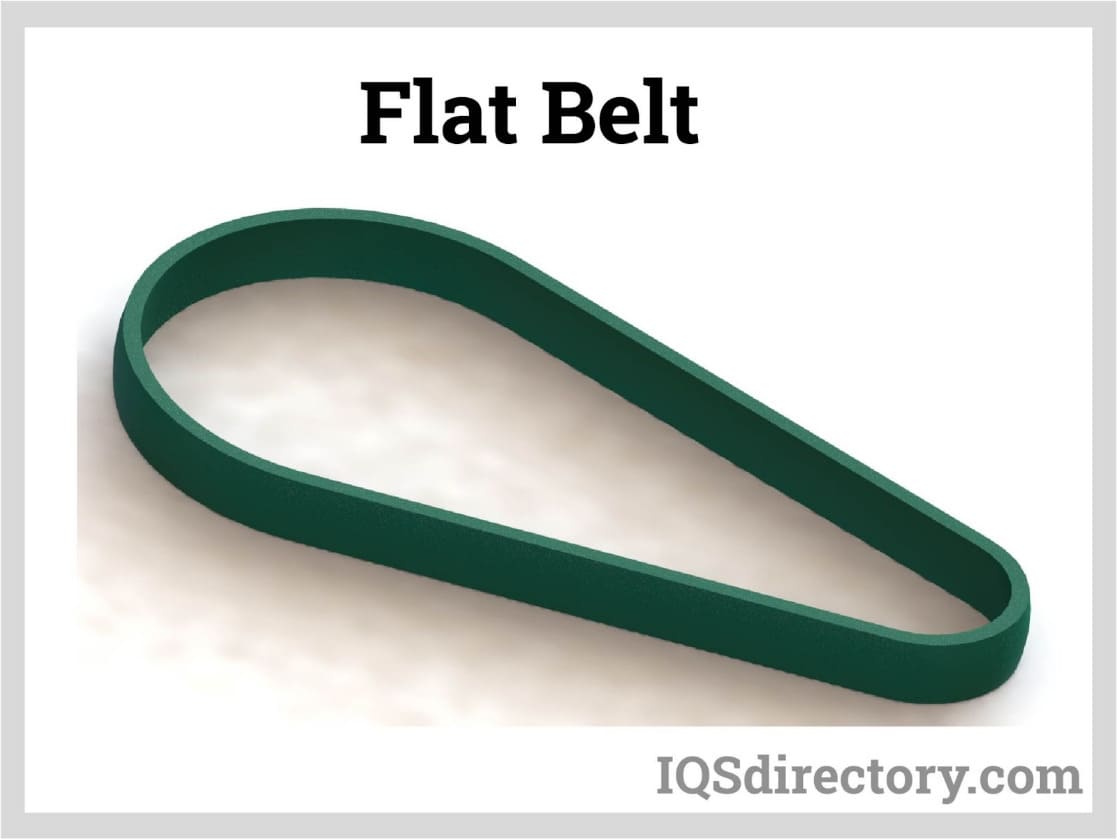
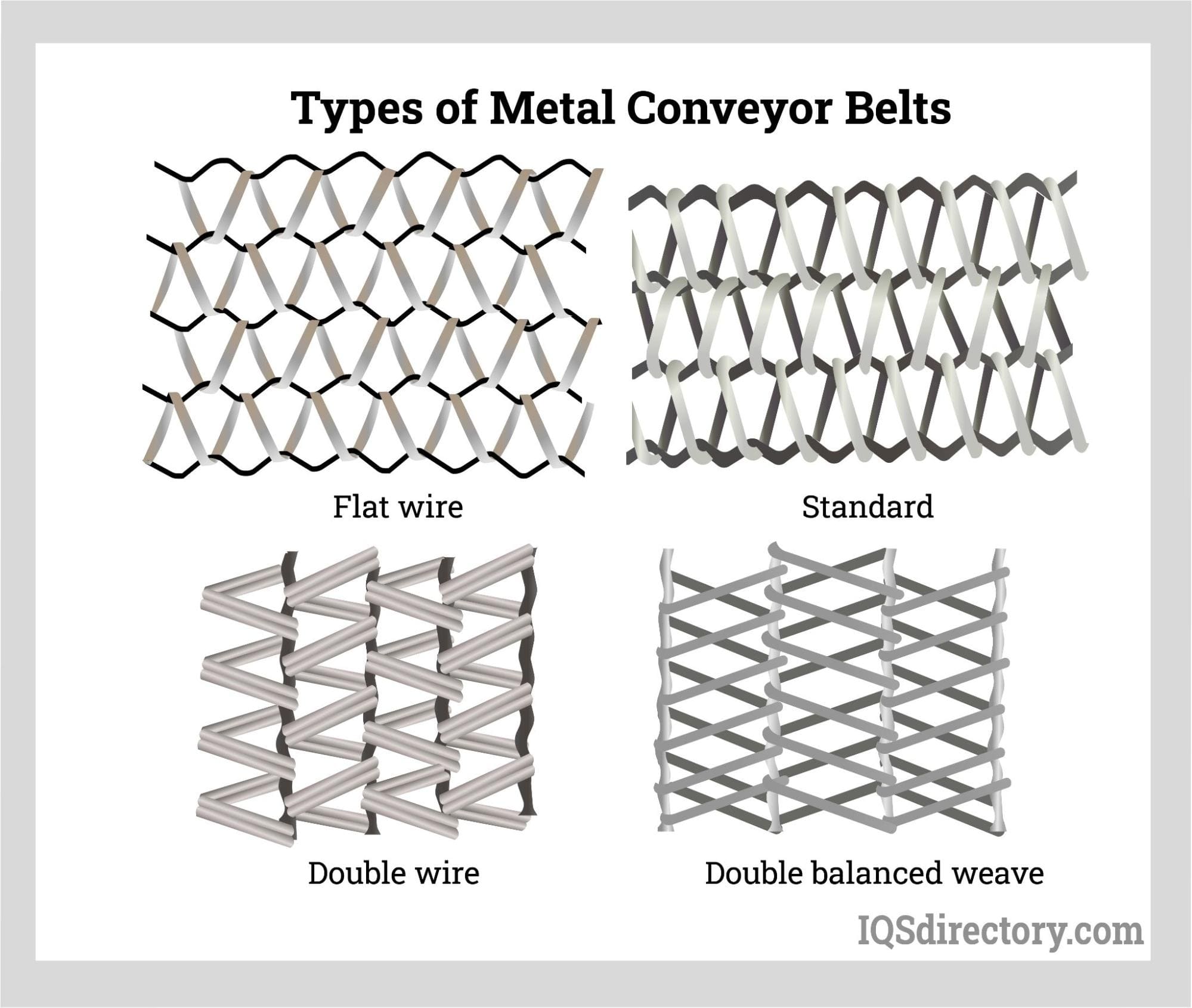
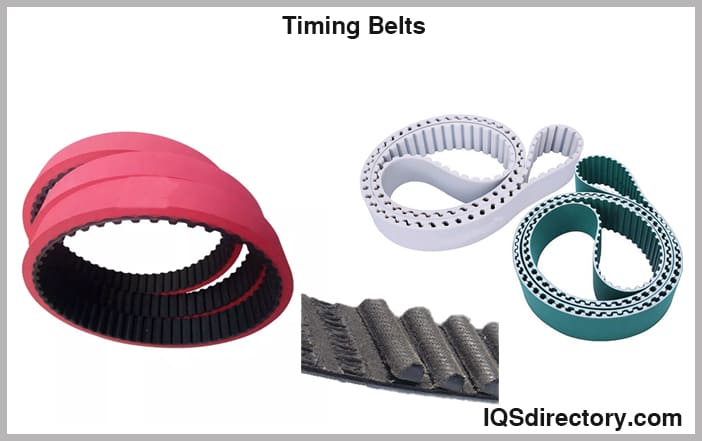
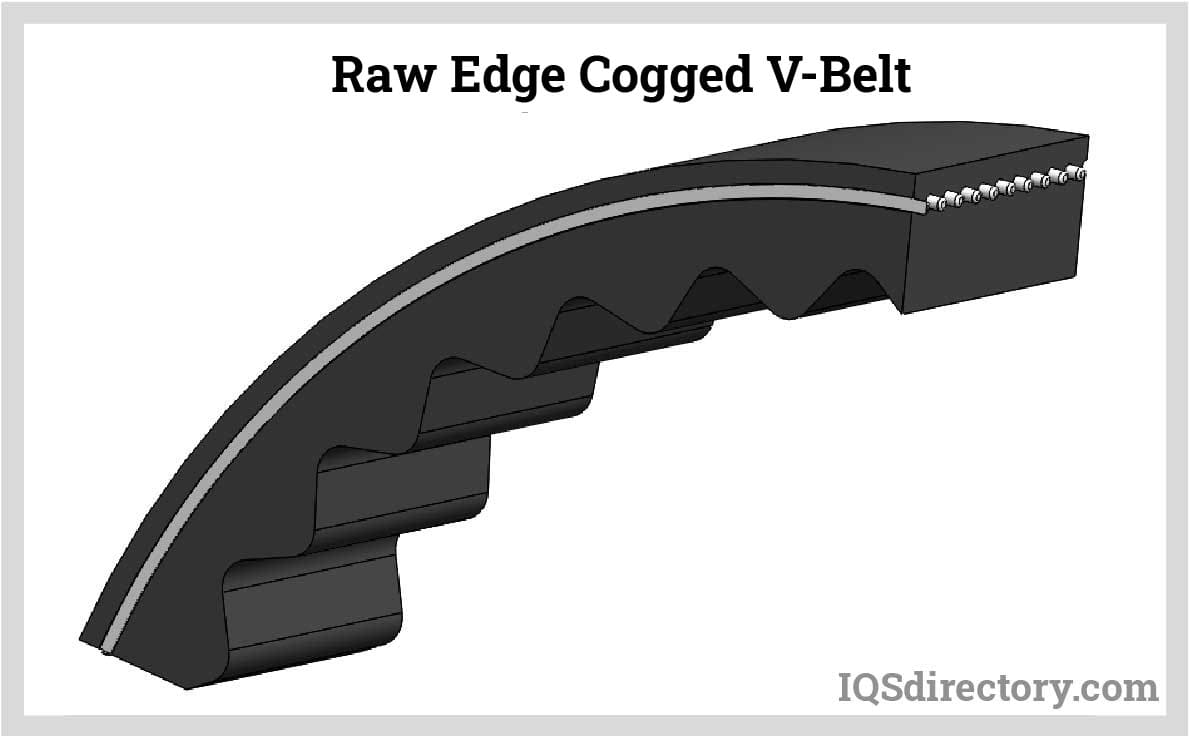
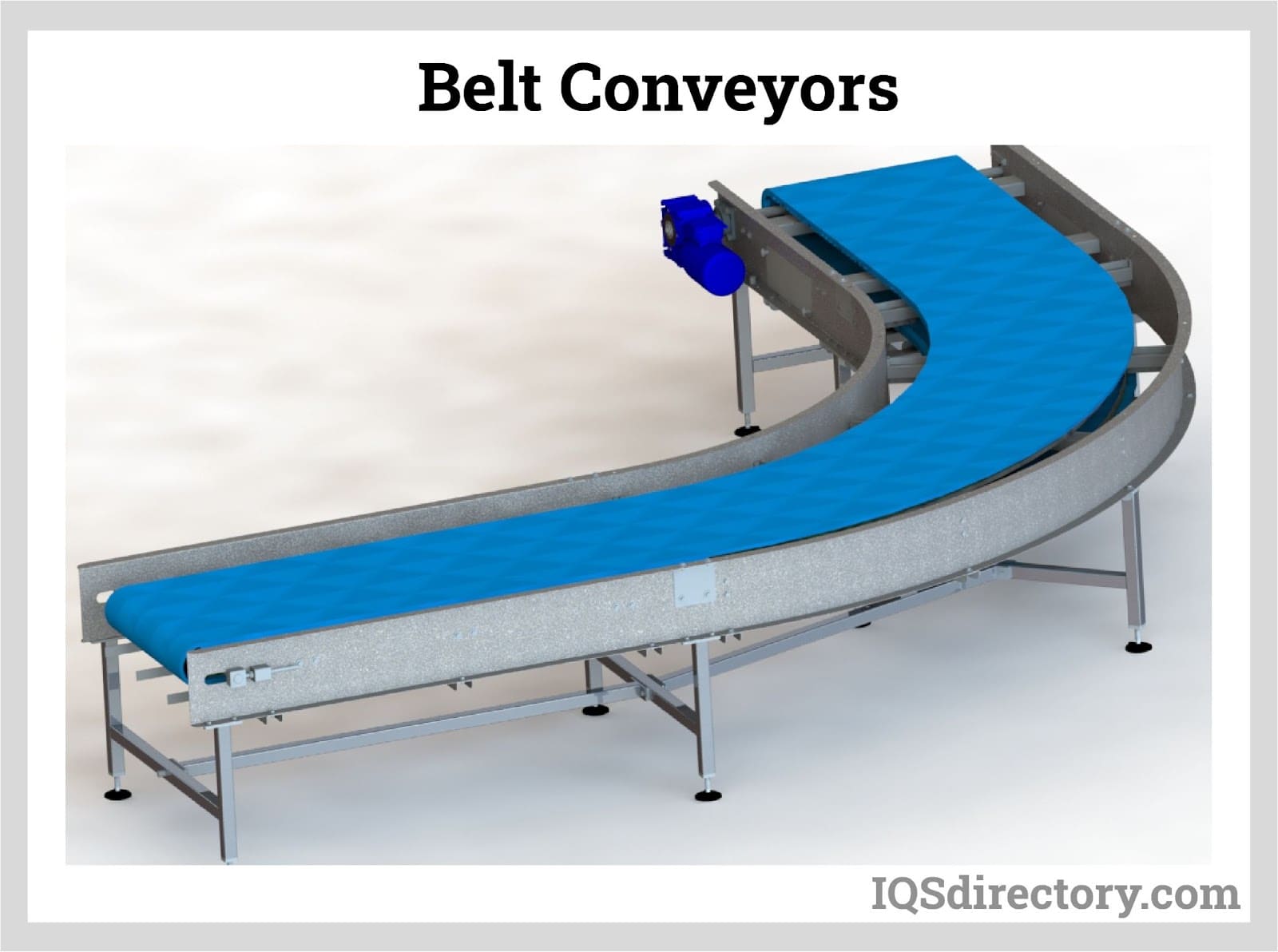
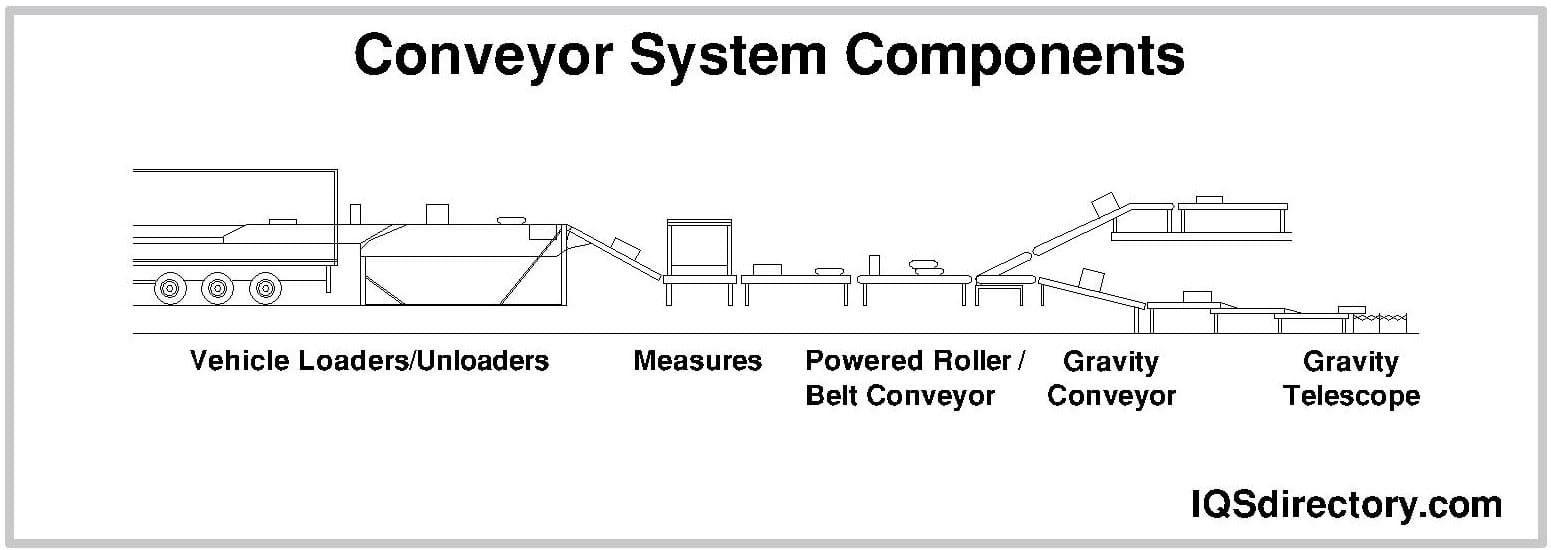
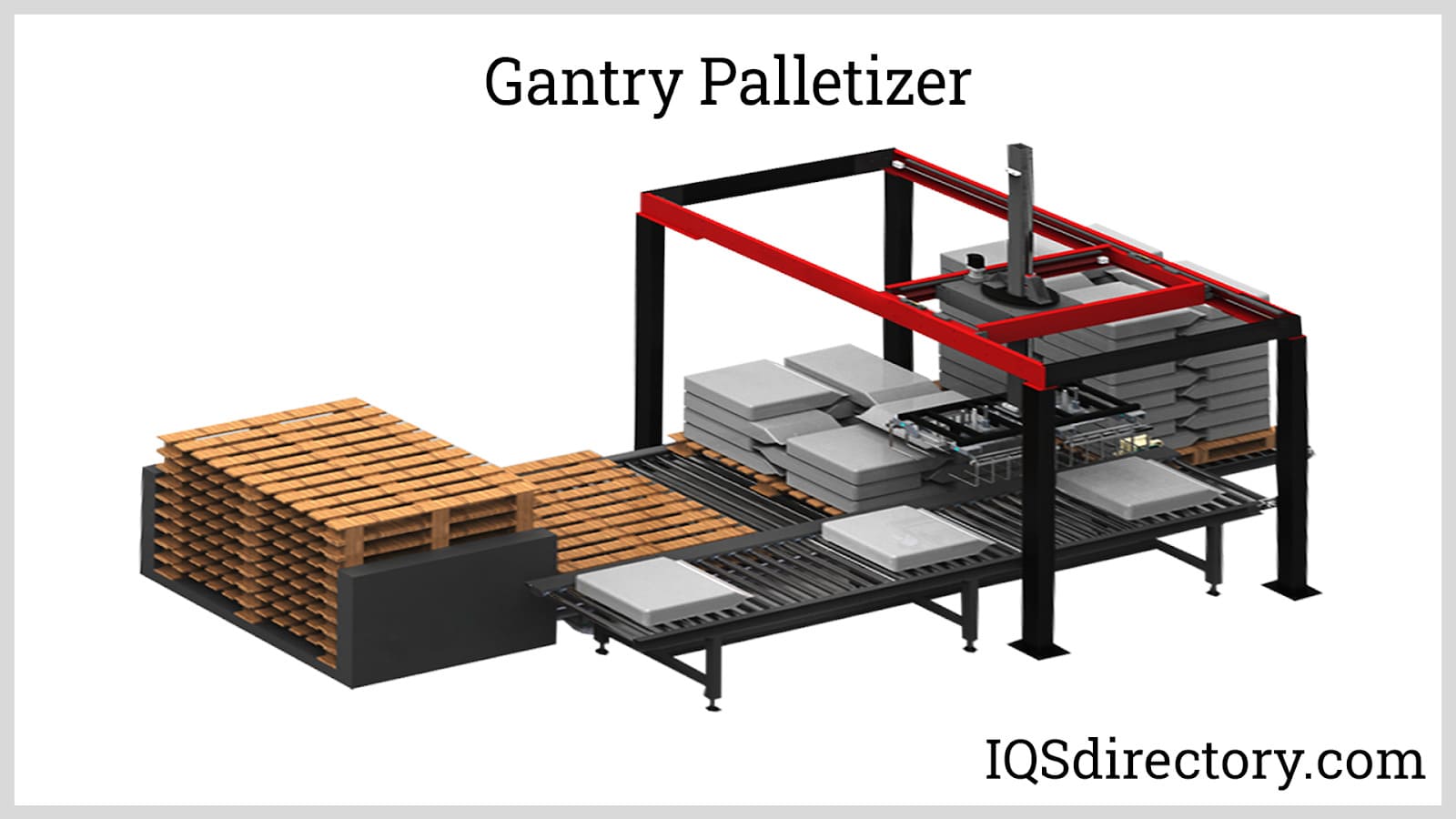
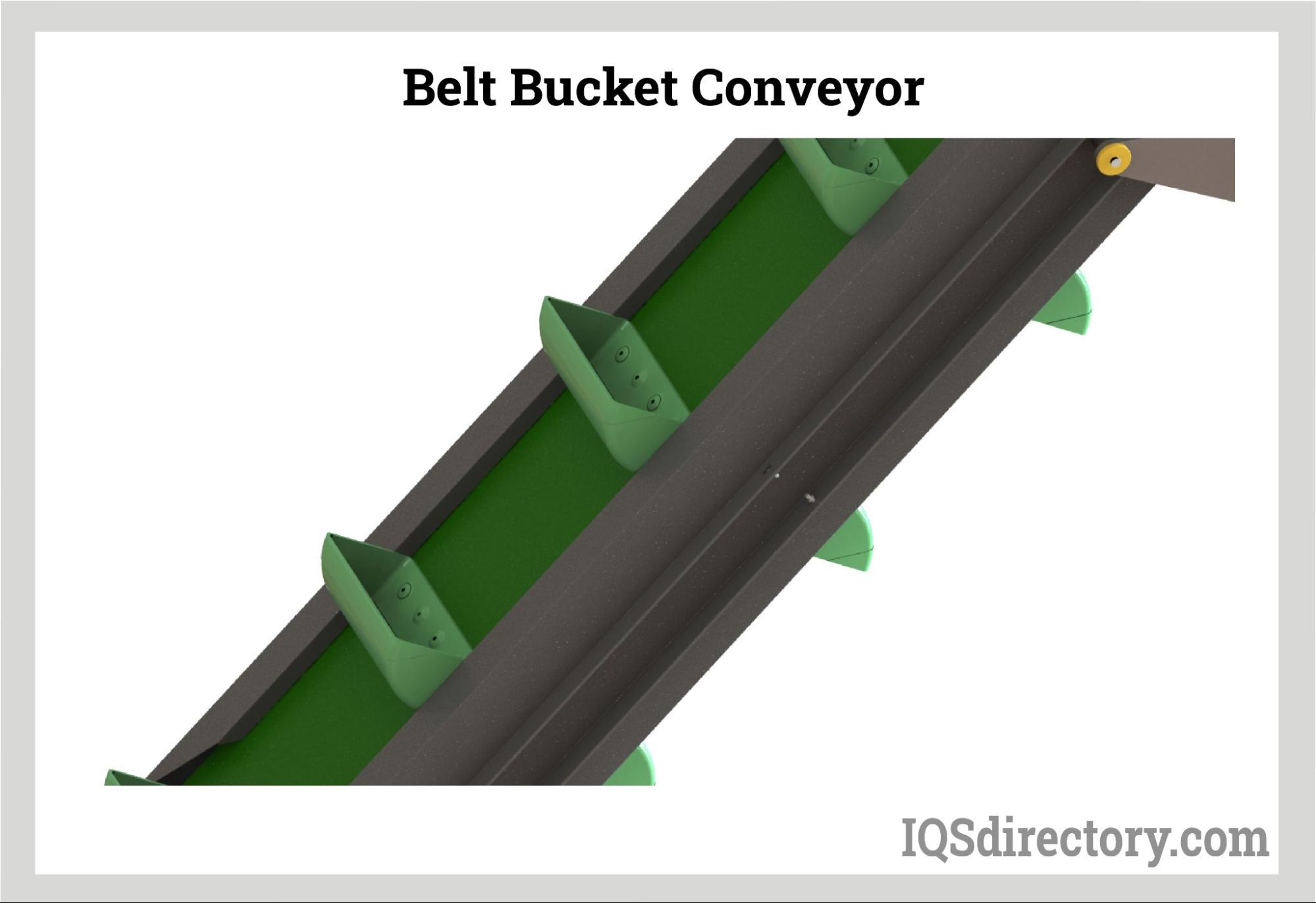
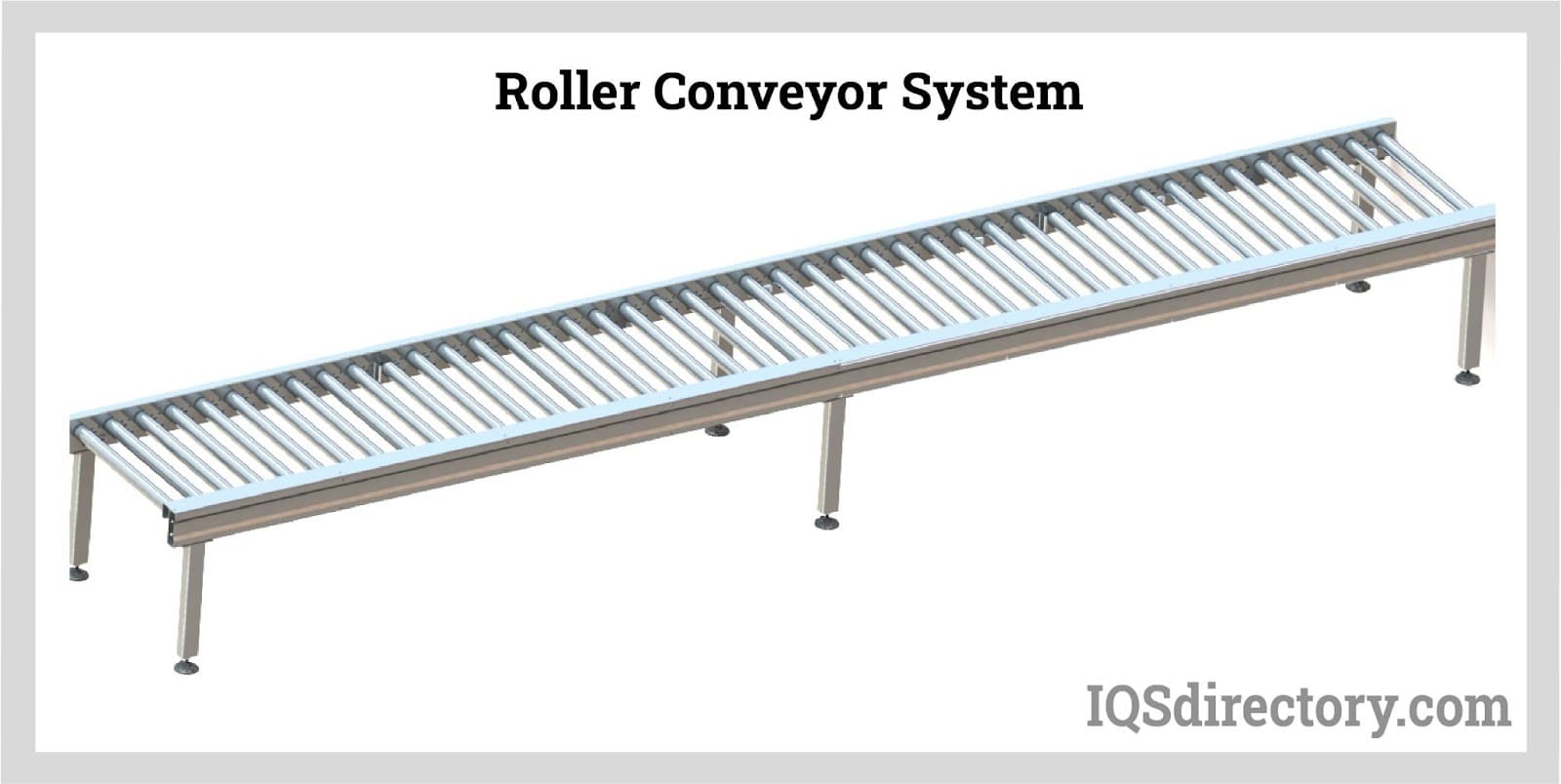

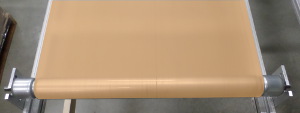 Conveyor Belting
Conveyor Belting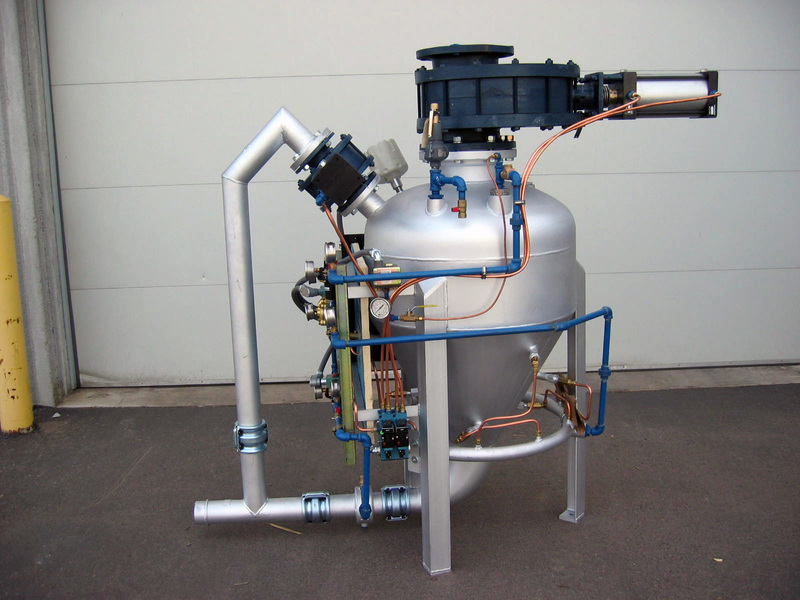 Conveyor Systems
Conveyor Systems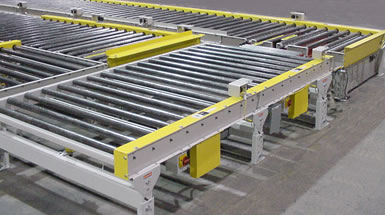 Conveyors
Conveyors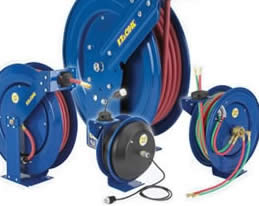 Hosereels
Hosereels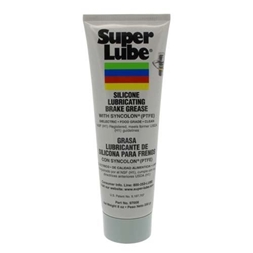 Industrial Lubricants
Industrial Lubricants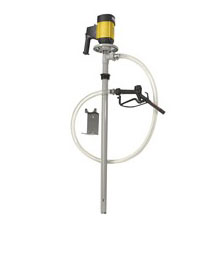 Lubricators
Lubricators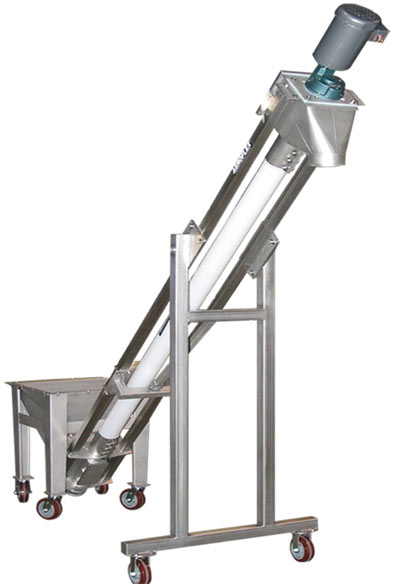 Screw Conveyors
Screw Conveyors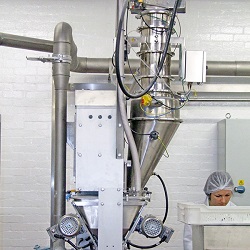 Pneumatic Conveyors
Pneumatic Conveyors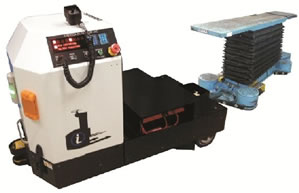 AGV
AGV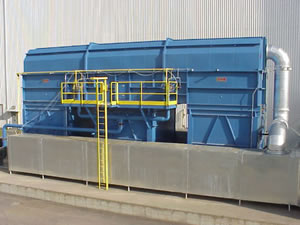 Air Pollution Control
Air Pollution Control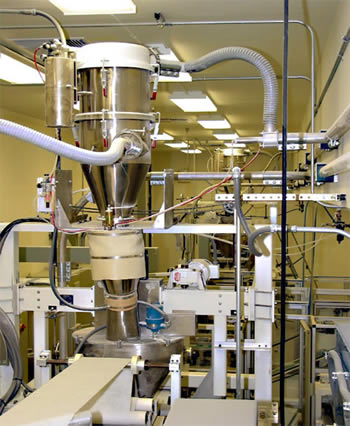 Assembly Machinery
Assembly Machinery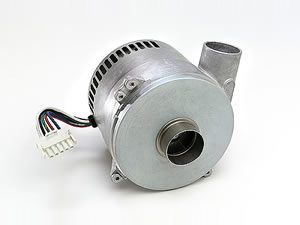 Blowers
Blowers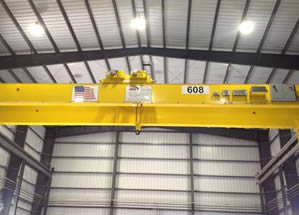 Cranes
Cranes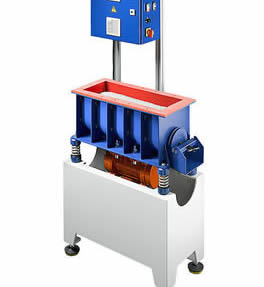 Deburring Machinery
Deburring Machinery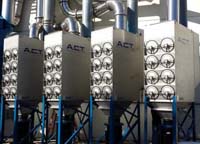 Dust Collectors
Dust Collectors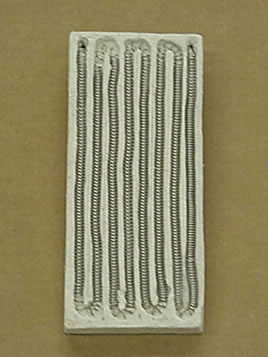 Heaters
Heaters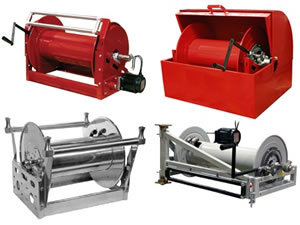 Hose Reels
Hose Reels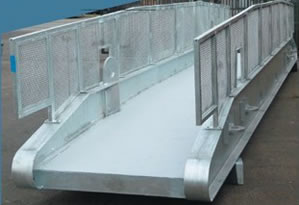 Mezzanines
Mezzanines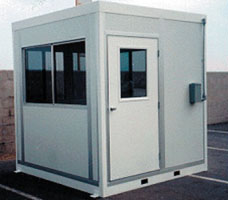 Modular Buildings
Modular Buildings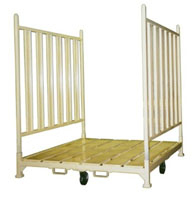 Storage Racks
Storage Racks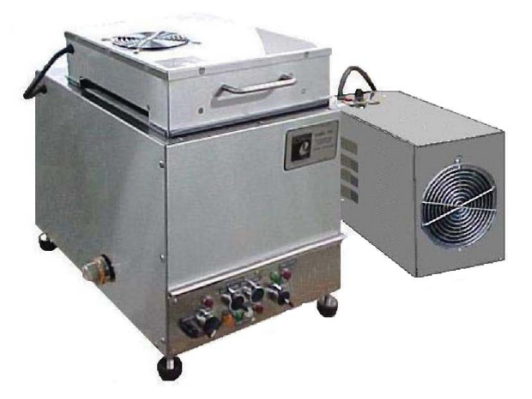 Ultrasonic Cleaners
Ultrasonic Cleaners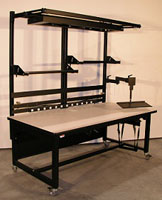 Work Benches
Work Benches